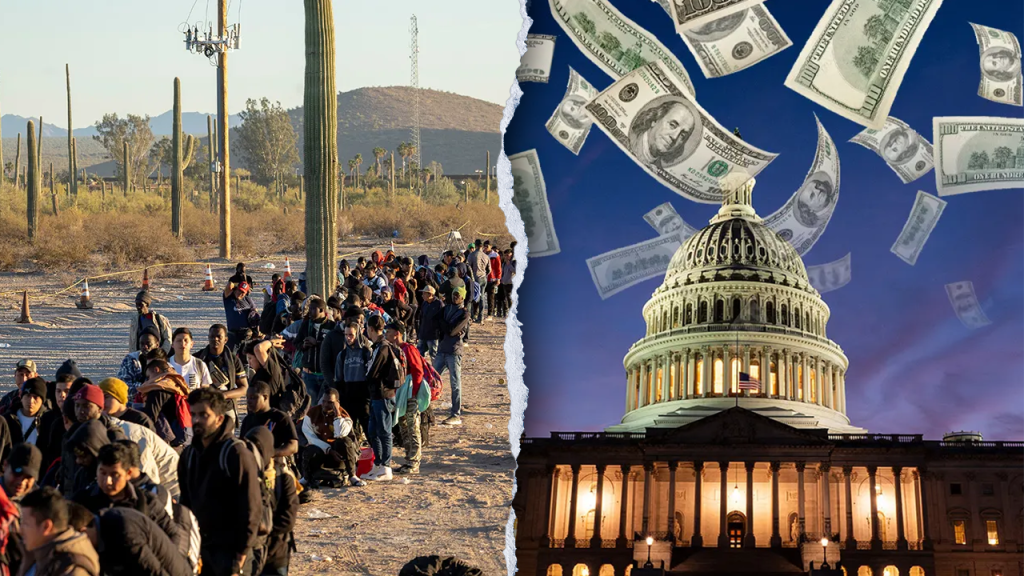The Politics and Realities of Healthcare Funding for Undocumented Immigrants
In the midst of a government shutdown, a contentious debate has emerged regarding healthcare funding for undocumented immigrants, particularly focusing on California’s policies. Republicans and Democrats find themselves at odds over a provision in Trump’s One Big Beautiful Bill Act (OBBA) that Republicans claim closes a “loophole” allegedly used by California to secure federal funds for healthcare coverage of undocumented immigrants. This clash highlights deeper divisions in American politics about immigration, healthcare, and fiscal responsibility, with both sides presenting conflicting narratives about what’s actually happening on the ground.
At the heart of the dispute is a complex Medicaid mechanism called a “provider tax,” which Republicans claim California uses to indirectly channel federal dollars toward healthcare for undocumented immigrants. Steve Hilton, a former Fox News host now challenging Governor Gavin Newsom, has been particularly vocal on this issue, directly contradicting Democratic claims that no federal money flows to healthcare for undocumented immigrants. According to Hilton, California employs a sophisticated financial strategy that allows them to pool provider tax funds with state money to ultimately support their program offering healthcare to all residents regardless of immigration status. This technical disagreement reflects a larger philosophical divide about who should receive government-funded healthcare services and how transparent the funding mechanisms should be.
The White House entered the fray by releasing a memo claiming Democrats want to repeal Trump-era reforms aimed at closing this purported backdoor funding mechanism. The situation is further complicated by input from policy experts who offer nuanced takes on the dispute. Michael Cannon from the libertarian CATO Institute acknowledged that provider taxes could potentially fund healthcare for undocumented immigrants but suggested Republicans didn’t go far enough in their reforms. Rather than simply limiting how provider tax funds could be used, Cannon argued they should have eliminated these taxes altogether, suggesting the GOP’s approach inadvertently “preserved the ability of states to use provider taxes to fund healthcare for undocumented immigrants using Medicaid.” This technical critique raises questions about whether the current political fight is more about symbolism than substantive policy impact.
California officials have forcefully pushed back against these characterizations. Governor Newsom’s office flatly denied using any “loophole” to fund undocumented immigrant healthcare with federal dollars, telling the Los Angeles Times simply: “This is false — CA does not do this.” Adding credibility to California’s position, Jennifer Tolbert, a healthcare expert at KFF (formerly Kaiser Family Foundation), explained that the provision Republicans want to protect “has nothing to do with using federal funds to pay for care for undocumented immigrants.” This expert assessment suggests the political narrative may be disconnected from the actual mechanics of healthcare funding. However, complicating matters further is the fact that states don’t keep detailed records on how provider tax funds from the federal government are ultimately spent, making definitive verification difficult for either side’s claims.
Some conservative policy experts offer additional perspectives that further muddy the waters. Chris Pope from the Manhattan Institute argues California may be drawing down federal funds through emergency care claims, which are permitted under federal law even for undocumented immigrants. Pope contends that “the enormous and open-ended discretion Medicaid gives states to claim federal funding makes it hard for the feds to ensure that the program’s expenditures are reserved for its intended purposes.” This assessment highlights a broader challenge in federal-state healthcare partnerships: how to maintain accountability while giving states flexibility to address their unique population needs. The emergency care exception represents yet another gray area in the already complex mosaic of healthcare funding regulations, making straightforward political claims about funding sources inherently problematic.
This debate transcends technical policy disputes and touches on fundamental questions about American values and priorities. California has pioneered a progressive approach by becoming the first state to offer comprehensive healthcare coverage regardless of immigration status—a policy decision that reflects a belief in healthcare as a human right rather than a privilege of citizenship. Meanwhile, critics see this as an inappropriate use of taxpayer resources that potentially incentivizes illegal immigration. The intensity of the shutdown fight over this specific provision reveals how healthcare for undocumented immigrants has become a proxy battle in America’s larger immigration debate. As the government remains shuttered and negotiations continue, both sides appear entrenched in their positions, with Republicans insisting federal funds are being misused and Democrats maintaining that California’s healthcare program complies with all federal restrictions. The resolution of this impasse may depend less on technical policy details and more on which side’s narrative ultimately resonates with the American public.













